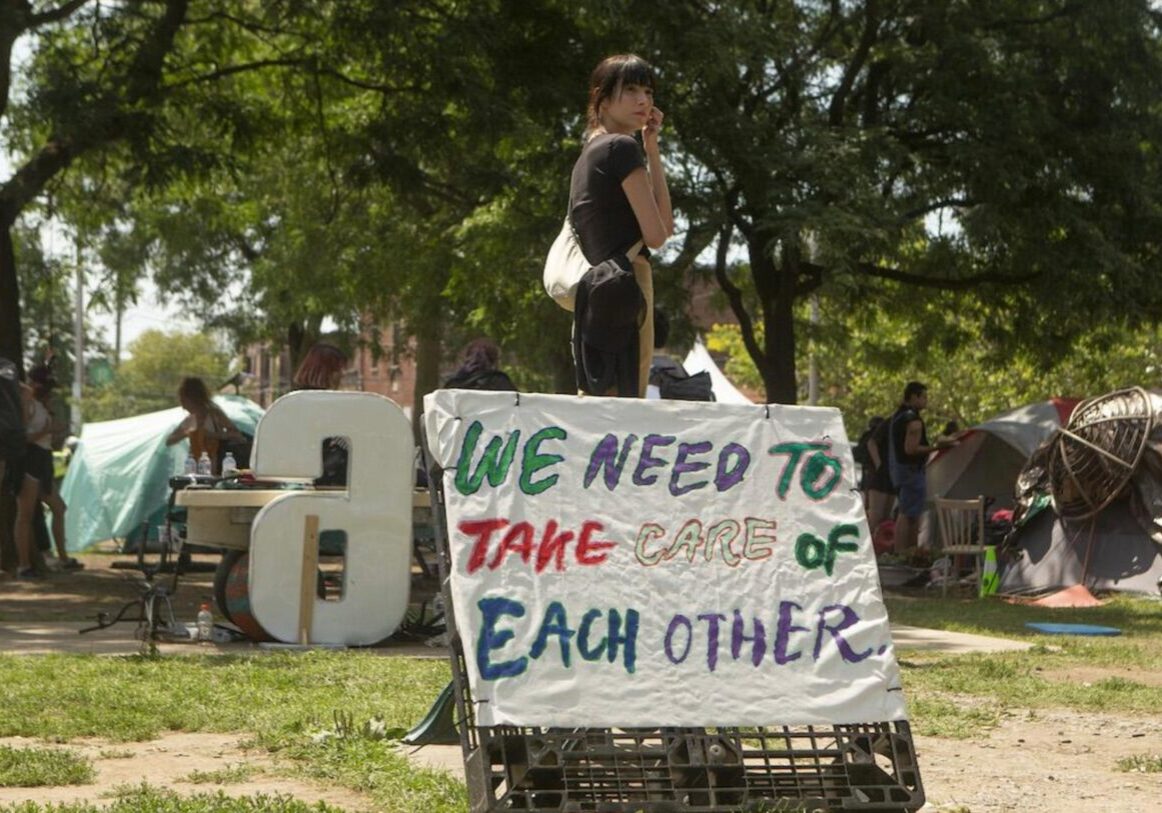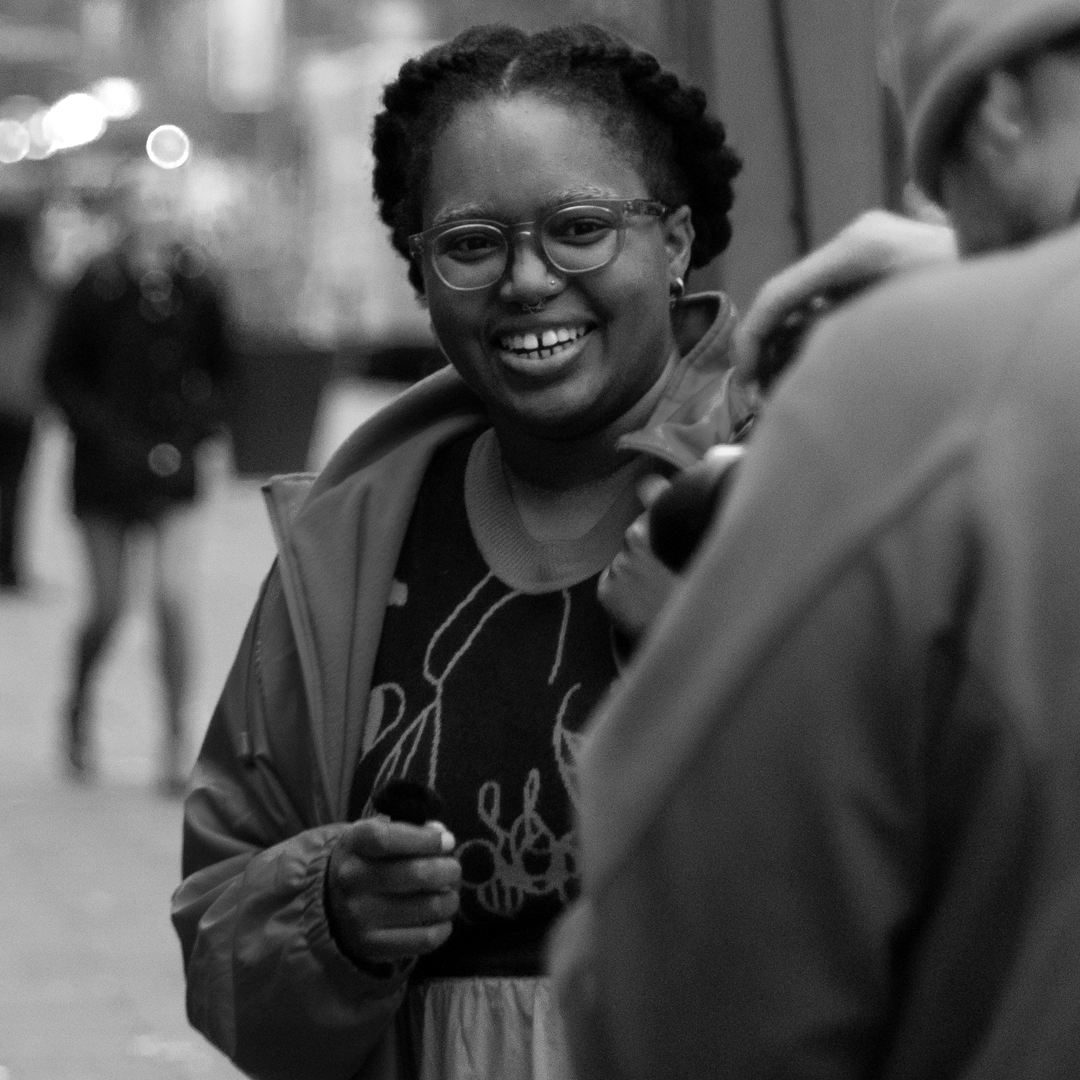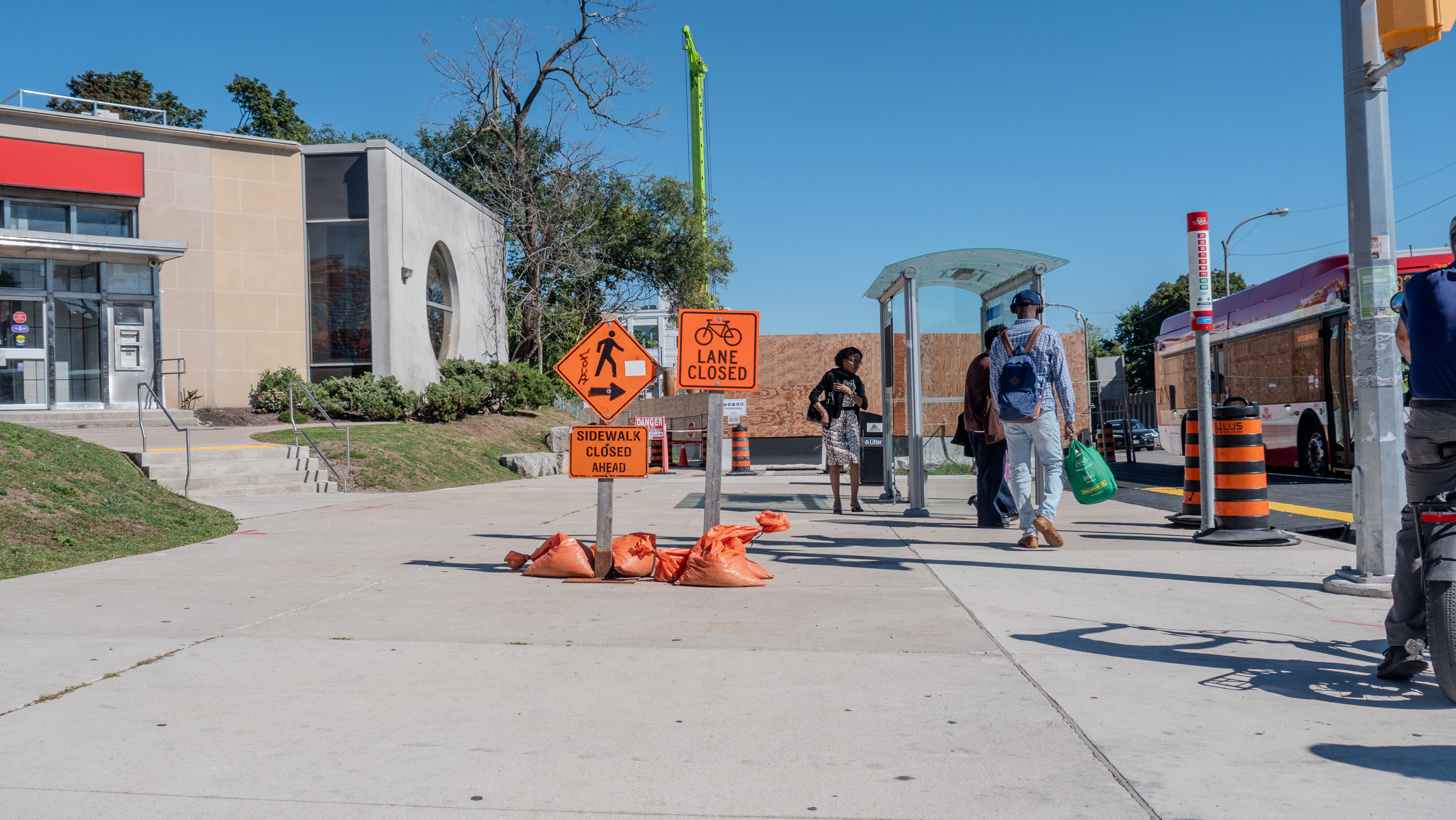THE GREEN LINE'S
CHANGEMAKER INTERVIEW
Turning likes into action with community worker Diana Chan McNally
For our April 2025 Changemakers newsletter, we spoke with community and crisis worker Diana Chan McNally about online and in-person advocacy, from Instagram to City Hall.

Portrait of Diana Chan McNally at an encampment.
📸: Chris Young.

Adele Lukusa
Graduate of Toronto Metropolitan University and Kitchener native living in Riverdale. Enamoured with all things arts and culture. Journalist and avid zinester who loves criticism, but loves iced tea more.
April 3, 2025
If you’ve been following Changemakers since its inception, you know I’ve been a big fan of Diana Chan McNally.
Changemakers' very first “Powered By” section featured one of her mixes — if you haven’t already listened to it, what are you waiting for?
She’s done everything: She studied art and design and taught at George Brown; and now, she works with unhoused folks during the day and spins italo-disco records from the 80s during the night.
Diana leads with her passion and it shows in her op-eds, her Instagram posts and her art. If I had to define what a caring person looks like, I’d point to her. Toronto can be such a demoralizing city sometimes, so I’m thankful there’s people like Diana out there to remind us that there’s always more lessons to learn, more records to spin and more ways we can help one another.
How did you get into advocacy and talking to media and government officials as a frontline worker?
I was really, really reticent to do it. But I ended up working at the Toronto Drop-In Network or TDIN. It’s a community centre for people who are homeless or underhoused. On my second day of work, my boss tells me: “You're going to go to City Hall and you're going to depute to the city councillors on transit fares.” I had never done that before and I really didn't want to do it. But, I did and that was the start of it.
TDIN is actually funded by the City of Toronto. So, we basically fight the city using the city's money. Very interesting kind of situation to be in. Instead of just being like: “Do better” and yelling, you have to tread lightly because otherwise your whole organization could get defunded and then you lose the ability to advocate.
That reminds me of journalism school and how we were taught to navigate being a journalist. Profs were pretty adamant that it was best, especially for those interested in working for traditional publications, to keep personal politics and opinions separate from your journalism, or face questions of bias. Does that play out similarly for frontline workers?
Yeah, frontline workers aren't allowed to talk to the media. It's seen as a liability. Organizations will stop you from speaking about your experiences working. So you'll see myself, you'll see Lorraine Lam but, you probably won't see anyone else. And it's because there's a freeze, a chill on frontline workers being activists and being able to speak to the media.
And it’s like we're playing by two sets of rules. Do you think people with far-right ideologies don't talk about the things that they believe in and that they value? They do, all the time. You have entire journalistic organizations that are effectively just based on personal politics. And yet, the rest of us are meant to play a game of neutrality where we're both-sidesing everything.
There has to be some kind of medium here, ethically speaking, where we're not just balancing all voices or only prioritizing one. We need to make more space for journalists and people like myself to speak freely without being told: “It’s going to jeopardize your funding” or “It's going to jeopardize your authenticity as a journalist.” None of that is true.
You have a pretty significant amount of following on socials. How do you build an online audience that actually engages with and takes action on the issues you care about?
So, you don't just do things for likes. You have to put out good ideas and you have to actually connect with people. They have to like you and want to engage with you in order to do things like sign a petition. Otherwise, it goes nowhere.
You can do that virtually, but ideally I think you should be doing that with people in real life as much as possible because that's how you actually engage in advocacy. Activism is building a real community, which mostly happens better in person. Not exclusively, because we also have to include folks with disabilities — and there's a very thriving online disability community.
By building a community, an actual community, people will come out. They'll come out to support your action and not just look at something, like it and then, scroll past. That's how we activate ourselves and create the change that's needed. And the more that people become invested, the more that we can spur them to action. It doesn't always have to be going to a rally and signing a petition. It's also just being with one another.
What’s your best advice for those looking to get out there and engage politically in the city?
If you're looking to be more engaged politically, go depute right now. It's such a good way to bring your voice to City Hall. And trust me, not that many people depute. You often have the same people deputing all of the time. So, to have those fresh perspectives is really important. Sometimes, it won't be taken seriously. Other times, it will. Voting is just 0.01 per cent of what democracy actually entails. Going and talking to your elected leaders in these kinds of formats actually can go somewhere.
But, you don't have to get involved in City Hall. One thing that I love seeing are all these very hyperlocal mutual aid groups springing up. In Dufferin Grove, for example, there are folks who are supporting the encampment there. And just seeing how these really small-scale neighbourhood projects are working, it’s beautiful.
In my opinion, that’s the best way to actually get involved in a good way. If you're shy about politics, just find your neighbours. What are you concerned about? What do you care about? What can you achieve in your immediate neighbourhood together? What does that look like? It's good to just know your neighbours and grow that community, but also to do tangible, small-scale things that you can control to make things better.
This interview was edited and condensed for clarity.
Fact-Check Yourself
Sources and
further reading
Don't take our word for it —
check our sources for yourself.
Care about our city, but don't know how to make it better? Sign up for simple, step-by-step guides to solving problems in your neighbourhood — one small action at a time.
